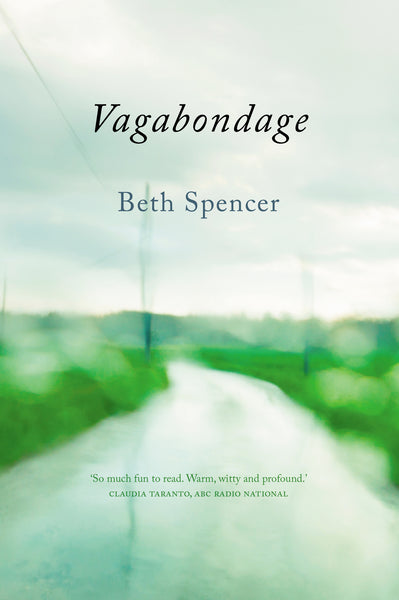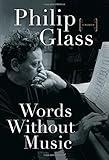 Smith would have us believe that
Smith would have us believe that
Tag: memoir
A review of Iran, My Grandfather by Ali Alizadeh
 It’s the story of many things at once: a country torn apart by power factions and manipulation, a story of a man and what happened to his patriotism over time, a story about genetic and cultural inheritance, a story about migration, and above all, what it means to lose a home—something as relevant today as it was during the time of Alizadeh’s migration.
It’s the story of many things at once: a country torn apart by power factions and manipulation, a story of a man and what happened to his patriotism over time, a story about genetic and cultural inheritance, a story about migration, and above all, what it means to lose a home—something as relevant today as it was during the time of Alizadeh’s migration.
A review of Small Acts of Disappearance by Fiona Wright
 These are close and moving readings that provide depth and personal insight into the narrative framework, the themes that pivot around mental illness and hunger, and the characters that become Wright’s partners through her own recovery. It’s not a facile recovery though. The memory of hunger is almost as acute as the hunger itself.
These are close and moving readings that provide depth and personal insight into the narrative framework, the themes that pivot around mental illness and hunger, and the characters that become Wright’s partners through her own recovery. It’s not a facile recovery though. The memory of hunger is almost as acute as the hunger itself.
A review of To Banquet with the Ethiopians by Philip Brady
 Brady paints a wide spectrum that not only includes the world of ancient Greece and Ethiopia but also the terrain of Queens, New York, where he grew up. Brady’s book makes known the impact of the Homeric texts on the young life of the protagonist.
Brady paints a wide spectrum that not only includes the world of ancient Greece and Ethiopia but also the terrain of Queens, New York, where he grew up. Brady’s book makes known the impact of the Homeric texts on the young life of the protagonist.
A review of Vagabondage by Beth Spencer
 Though the poetry is easy to read and instantly accessible, the work operates on several levels. There is the political: the woman dispossessed, unable to afford rising Melbourne property prices (and a later nod to the global financial crisis; there is the spiritual: the idea of letting go of attachments and expectations: “I am a whisper/of butterflies”; and there is the tangible: the poet’s attempts to make a coherent life and create meaning during this period of intransience.
Though the poetry is easy to read and instantly accessible, the work operates on several levels. There is the political: the woman dispossessed, unable to afford rising Melbourne property prices (and a later nod to the global financial crisis; there is the spiritual: the idea of letting go of attachments and expectations: “I am a whisper/of butterflies”; and there is the tangible: the poet’s attempts to make a coherent life and create meaning during this period of intransience.
A review of Words Without Music by Philip Glass
 There is so much to learn here, not just about Glass, but about ourselves—how to live, how to learn, how to create. Towards the end of the book, Glass talks about his work on his Cocteau Trilogy in which he says, of Cocteau, that he “is teaching about creativity in terms of the power of the artist, which we now understand to be the power of transformation” (378) The same can be said of Words Without Music.
There is so much to learn here, not just about Glass, but about ourselves—how to live, how to learn, how to create. Towards the end of the book, Glass talks about his work on his Cocteau Trilogy in which he says, of Cocteau, that he “is teaching about creativity in terms of the power of the artist, which we now understand to be the power of transformation” (378) The same can be said of Words Without Music.
A review of The Twelfth Raven by Doris Brett
 One ordinary evening when Doris Brett and her husband Martin went out dancing, the normally super-sharp Martin became confused. After struggling to put sentences together, an ambulance was called, and, in Doris’ own words, “so it begins.” Martin ends up having a massive stroke, suffering extensive damage to the left frontal lobe, which leaves him unable to talk, walk (never mind dance) and eat on his own.
One ordinary evening when Doris Brett and her husband Martin went out dancing, the normally super-sharp Martin became confused. After struggling to put sentences together, an ambulance was called, and, in Doris’ own words, “so it begins.” Martin ends up having a massive stroke, suffering extensive damage to the left frontal lobe, which leaves him unable to talk, walk (never mind dance) and eat on his own.
A review of And there was Light by Jacques Lusseyran
 Some books should not be read with other books. Or the other book will not compare favorably. Some books remind the reader of why books are read in the first place – because they open the eyes and heart to new worlds that the reader had never dreamed of. Some books remove the cap from our head, and open the top of our skulls. And There was Light is such a book — at least in the first section. But for some, it might be the second section. It depends.
Some books should not be read with other books. Or the other book will not compare favorably. Some books remind the reader of why books are read in the first place – because they open the eyes and heart to new worlds that the reader had never dreamed of. Some books remove the cap from our head, and open the top of our skulls. And There was Light is such a book — at least in the first section. But for some, it might be the second section. It depends.
A review of Ninety 9 by Vanessa Berry
 There’s a real beauty to this little book, from the attractive matt finish, small, square format that characterises all of the Giramondo shorts, to the Berry’s own hand-drawn illustrations, which give the book a slightly rogue, zine feel. The book is written in light, clear prose, using a confessional first person form, which begins with Berry at the age of eleven. This style invites the reader in immediately, inviting us to share both her family life – including her gifted sister’s music lessons and the tension between Berry and her mother, as well as her secret and later, not so secret yearnings.
There’s a real beauty to this little book, from the attractive matt finish, small, square format that characterises all of the Giramondo shorts, to the Berry’s own hand-drawn illustrations, which give the book a slightly rogue, zine feel. The book is written in light, clear prose, using a confessional first person form, which begins with Berry at the age of eleven. This style invites the reader in immediately, inviting us to share both her family life – including her gifted sister’s music lessons and the tension between Berry and her mother, as well as her secret and later, not so secret yearnings.
A review of By the Book: A Reader’s Guide to Life by Ramona Koval
By the Book brings the reader into the story right from the start, and envelopes us in a kind of shared conversation about ourselves. By the Book is all about conversation – and as we ‘converse’ with Koval through her own history, and…